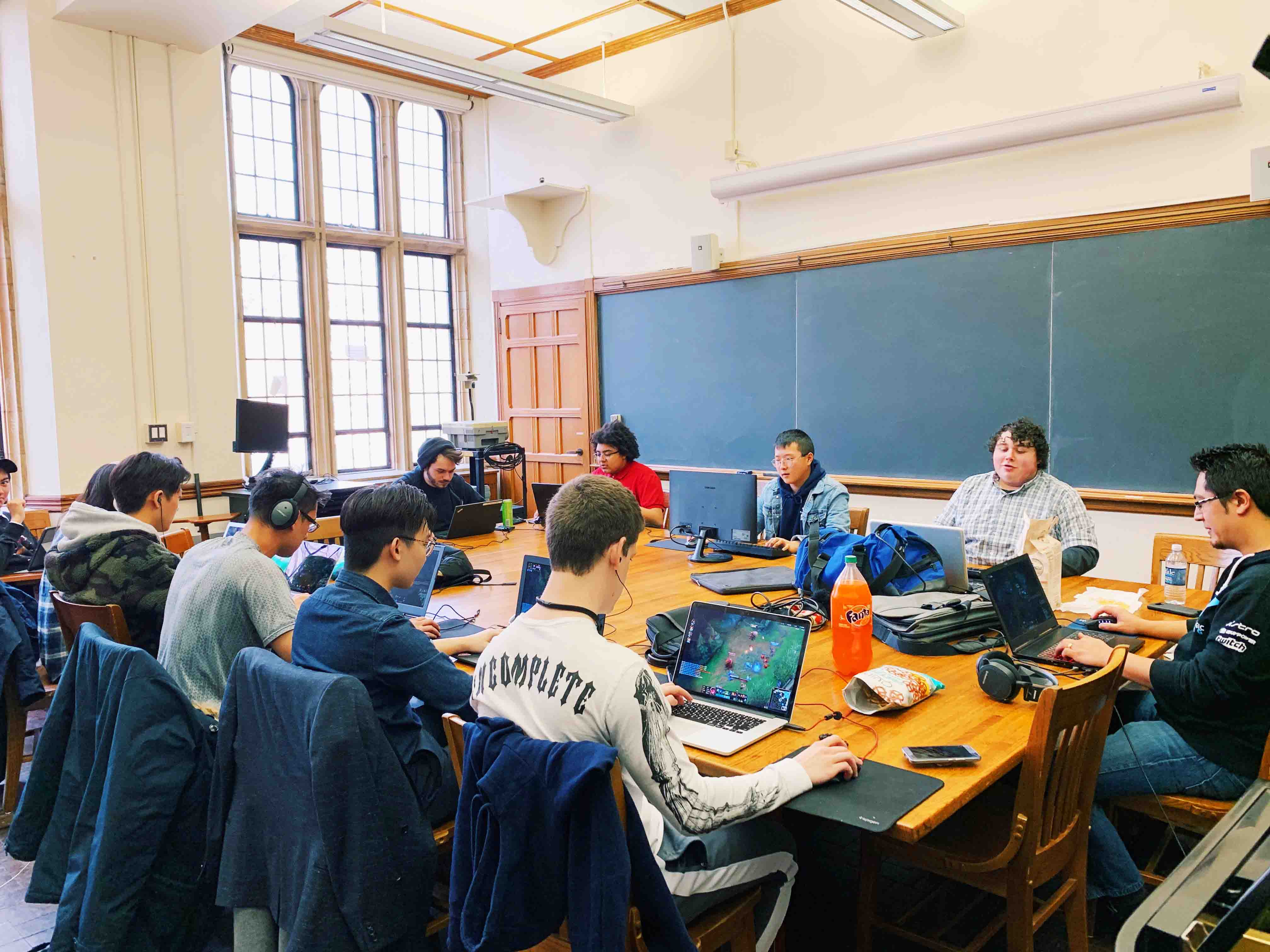
Courtesy of Yale Esports
This past Saturday, 40 gamers set up their desktop computers and glowing keyboards in William L. Harkness Hall to compete in the Yale 2019 Winter Open League of Legends Tournament.
Hosted by the Yale Esports Club, which was founded last September, the contest featured eight teams of five players from Yale, Sacred Heart University and the larger New Haven community. The club was founded by Jeffrey Zhou ’21, Ethan Williams ’21 and Jun Kwak ’21 and now has 50-60 active members. Though League of Legends, a multiplayer online battle arena video game, is the most popular esport, many club members also compete regularly in collegiate tournaments for games like Hearthstone, Fortnite, FIFA and Overwatch.
“I met a lot of my best friends at Yale through [playing] video games [together],” Zhou said. “I think they’re a great way to get to know people in general. One of the reasons why we started the Esports club in the first place was to create a community where students can meet other gamers, and I think that an in-person tournament really helped develop that community.”
According to Zhou, the Esports Club has been planning the large-scale event for weeks. The process involved not only finding a suitable venue for 40 gamers and their equipment but also registering the tournament through the official channel of Riot Games— the developer of League and an esports tournament organizer based in California. Riot provided in-game prizes for the winner of the contest.
According to Williams, though club leaders initially planned for the tournament to only feature players from Yale, they ultimately decided to expand the player pool to include local gamers and students from other universities because not enough Yale teams signed up.
“The local teams were definitely a big part of what made the tournament great,” Williams reflected. “They were extremely passionate and energetic, and elevated the atmosphere of the tournament as a whole. It was also great to see Yale students engaging with other people in and around the New Haven area — one of our teams consisted of a combination of Yale students and two brothers from Stamford.”
After three rounds of single elimination, team Spin2Win, a group of Yale juniors and seniors, claimed the top prize.
In the collegiate sphere, the esports community has gained a great amount of traction traction over recent years. Since 2014, over 300 collegiate League of Legends teams have competed annually for the College Championship, which awards a $100,000 prize pool in scholarships.
“I really enjoyed getting to interact with other people in the community who play League of Legends,” tournament participant Yvonne Ho ’21 said. “The teams were competitive and took the game seriously. The Esports Club really brings together students from all backgrounds who love to play games. I think the community is growing, and in the future, it’s definitely going to attract more people.”
At Yale, most students game as a way “to take a step back from everything that’s happening around school and to do something different,” said Tony Gao ’21, who also competed in the Winter Open League tournament. Gao added that although his team lost, putting in their “best efforts” into communication and teamwork was a “fulfilling experience.”
Caleb Kim ’21 said that he only participated as a last-minute substitute, but found that “there was a supportive environment even within competition” and that “it was really fun in the end.”
The Esports Club hopes to host another League tournament before the end of the semester. This time, Zhou and Williams want the format to be solo queue, which means that instead of signing up as a team, players will register individually and be assigned to teams based on skill level.
“There were definitely a lot of logistical issues that we didn’t anticipate in our first tournament,” Zhou said. “That being said, now that we’ve experienced these difficulties first hand, I think that our future tournaments will all run much more smoothly, and we’re really looking forward to the future of Esports at Yale.”
League of Legends was released in 2009 and has an active player base of over 80 million monthly users.
Lucy Liu | l.liu@yale.edu







